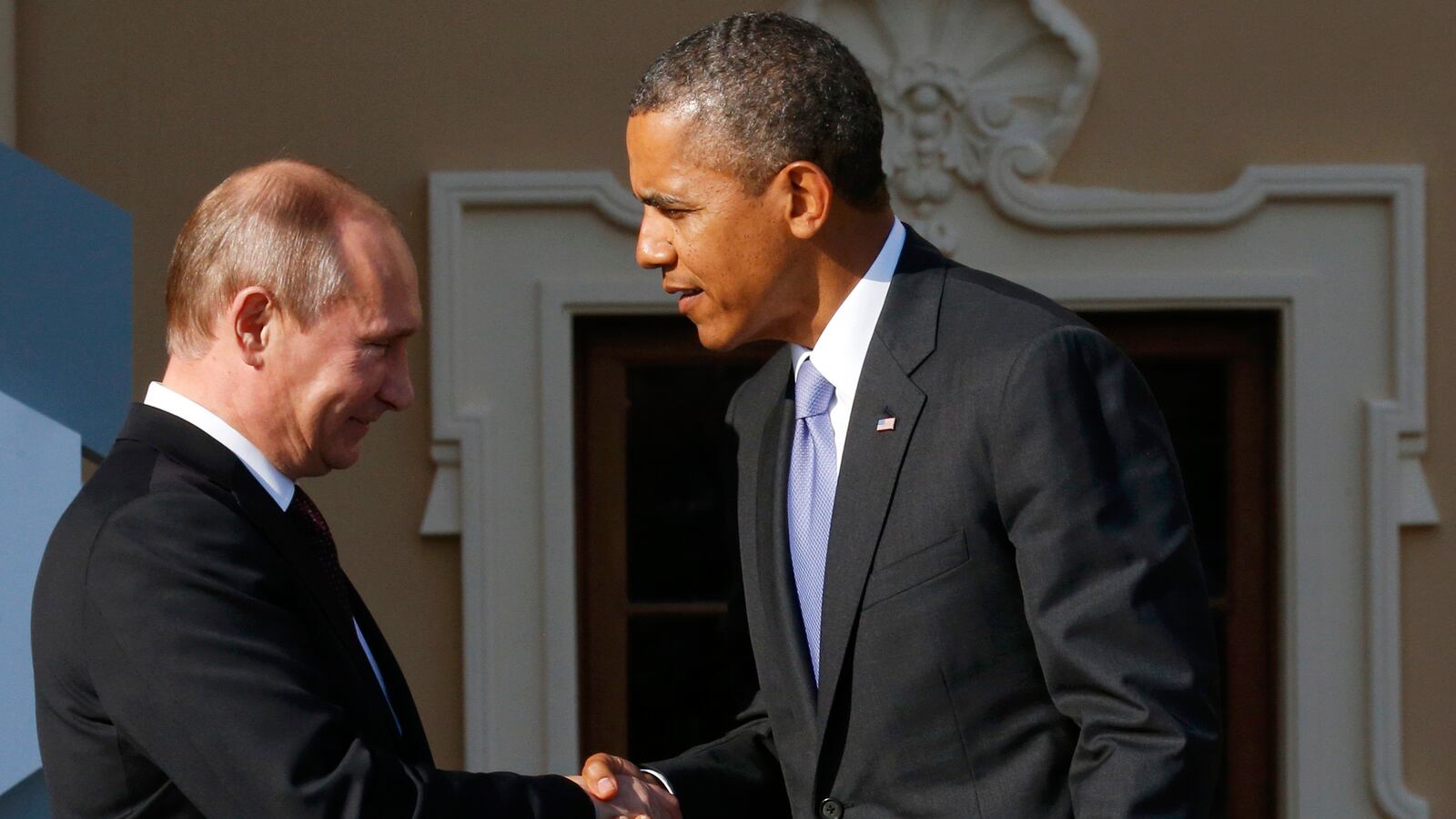For the last few years watching Barack Obama and Vladimir Putin has been like watching bad sessions of a dance class. Missteps and long pauses, each side is convinced that it is so much better than its rival, who is ironically supposed to be its partner on the world stage. Hasn’t the Cold War been over for more than two decades?

Still, Russia continuously questions the sincerity of America’s need to interfere in other nations’ affairs, which Putin sees as the new colonialism. And for the U.S., the troubling matter is, among other things, Putin’s deep unconcern for human rights: from his disregard to the political opposition to the recent anti-gay propaganda law that hampers freedoms.
And let’s not forget another point of contention: last month Russia gave asylum to Edward Snowden, a former U.S. spy agency contractor, after he exposed secrets of American surveillance programs. Putin insisted that by granting asylum he protected the rights of the whistleblower, while Obama, declaring Snowden a traitor, called off a late August Moscow meeting with the Russian president in protest.
This animosity is now on full display at the G20 summit in St. Petersburg. Russia, the 2013 G20 president, is hosting the often boring annual gathering that brings together the most industrialized nations to discuss global tax evasion, growth, trade, and bank transparency. But this year, forget the economy. It is all about politics: Putin, Obama, and the largest elephant in the room, Syria.
A summit has not been watched this closely since the times of the Cold War when the communist and capitalist rivals were scrutinized on both sides, from their body language to their sitting arrangements. And on Thursday, as the summit kicked off, everyone was looking for clues that Obama and Putin might give away during their face-to-face encounter on the steps of the opulent Konstantin Palace, the summit’s venue. The host, Putin, was coolly cordial. Obama, the halfhearted visitor, had his face clinched in a frozen smile. And as the day progressed, both leaders mingled with others but avoided one another’s company.
For the disagreeing parties, this is nothing unusual perhaps. But in decades I haven’t seen such an intent PR effort on both sides—the national media’s trying to slant the image in their man’s favor. The battles of the “propagandas” reminded me of the 1962 Cuban missile crisis. Then the U.S. and U.S.S.R. had their own versions of whom to thank for avoiding World War III. In America, premier Nikita Khrushchev was seen as the loser who blinked first; in the Soviet Union, John F. Kennedy was considered the inexperienced and thus surrendering party.
Similarly, the question of the G20 these days is not so much inequality or capital flight as most economic summits go, but who is going to blink on Syria first.
In the next few days Obama will surely work the palace’s gilded corridors to rally international support for a military strike against Syrian President Bashar al-Assad over alleged chemical weapons use a few weeks back.
A visitor’s required smile notwithstanding, the usually polite U.S. president does little to hide his contempt for Putin’s unsavory political affiliations. Recently speaking about the necessity for the Syrian intervention, Obama chose a few rather unpresidential metaphors in comparing Putin to “a slouch, a bored kid in the back of the classroom.”
Putin, known for his unforgiving nature, in turn accused U.S. Secretary of State John Kerry of lying as Kerry played down the role of al Qaeda among the Syrian rebels. A staunch ally of Assad, the Kremlin leader was thoroughly undiplomatic, even more pointedly as the comment was made on the eve of the G20 summit.
The first day of the G20 summit made it clear that the Russian president feels that he owns the debate. Not only is he on his own turf in his birth city of St. Petersburg, but he also sees the world as being on his side of the Syrian crisis. At the formal dinner last night, most countries expressed little appetite for yet another U.S.-led conflict while the decade-old wars in Iraq and Afghanistan remain unresolved. The fact that Putin’s argument against intervention is in support of Assad while for others it is simply against the military solution is just semantics in the Kremlin’s view—it doesn’t matter why Russia wins as long as it does. And with a boost from an unusual supporter, Pope Francis, who wrote a letter to Putin asking him to steer the G20 summit toward the peaceful resolution of the Syria crisis, the St. Petersburg host feels on top of the world.
Strategically though, this might be just a Pyrrhic victory. Assad will be deposed one day, with or without American intervention. And Putin’s credibility, already damaged by his support of the dictator and his own desecration of human rights, will suffer even more. What he doesn’t see is that in the long run, the advantage that he may feel today is accidental—the current international alignment is of the Cold War type: those who are with us are not against us. And he should be well advised to remember that Russia already lost the Cold War.






